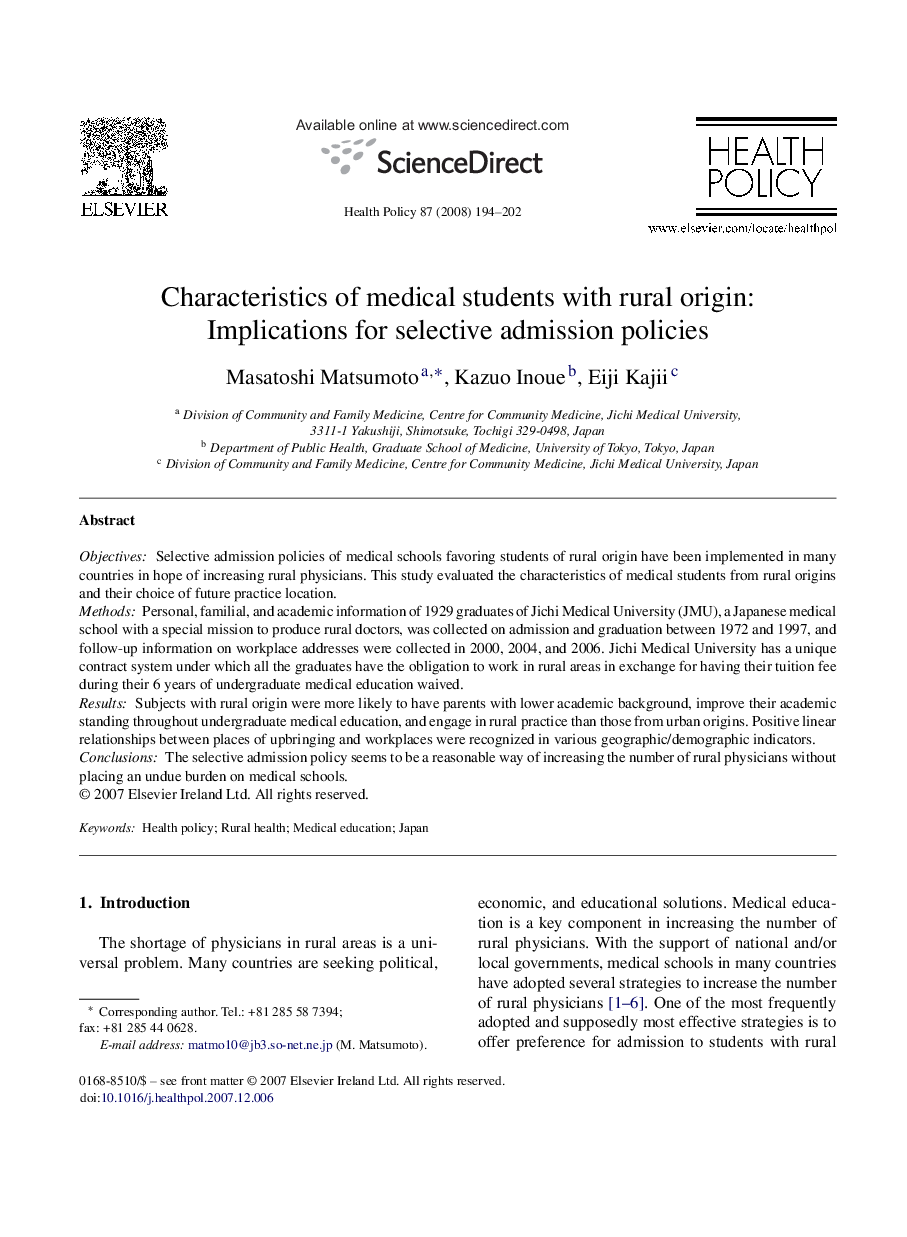| Article ID | Journal | Published Year | Pages | File Type |
|---|---|---|---|---|
| 4198835 | Health Policy | 2008 | 9 Pages |
ObjectivesSelective admission policies of medical schools favoring students of rural origin have been implemented in many countries in hope of increasing rural physicians. This study evaluated the characteristics of medical students from rural origins and their choice of future practice location.MethodsPersonal, familial, and academic information of 1929 graduates of Jichi Medical University (JMU), a Japanese medical school with a special mission to produce rural doctors, was collected on admission and graduation between 1972 and 1997, and follow-up information on workplace addresses were collected in 2000, 2004, and 2006. Jichi Medical University has a unique contract system under which all the graduates have the obligation to work in rural areas in exchange for having their tuition fee during their 6 years of undergraduate medical education waived.ResultsSubjects with rural origin were more likely to have parents with lower academic background, improve their academic standing throughout undergraduate medical education, and engage in rural practice than those from urban origins. Positive linear relationships between places of upbringing and workplaces were recognized in various geographic/demographic indicators.ConclusionsThe selective admission policy seems to be a reasonable way of increasing the number of rural physicians without placing an undue burden on medical schools.
